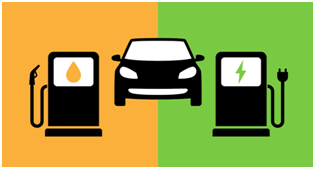

Context
The Union Territory of Ladakh has come up with an electric vehicle policy, “Ladakh’s Electric Vehicle and Allied Infrastructure Policy 2022”.
About
Key-points
- The policy aims to transform Ladakh into a torchbearer in terms of the adoption of electric vehicles in the country and envisions encouraging and cultivating an EV ecosystem in the Union Territory.
- With this, the administration will encourage the citizens to procure and use e-vehicles to create a carbon-neutral future for the UT.
- The policy entails a capital subsidy of 10 per cent on two-wheelers, three-wheelers and four-wheelers.
- Public buses will be given a capital subsidy of 25 per cent under the policy.
|
Electric Vehicles
|
Indian Policies on EVs
- In 2010, the Ministry of New and Renewable Energy (MNRE),announced a financial incentive for manufacturers for EVs sold in India.
- In 2013, India unveiled the National Electric Mobility Mission Plan (NEMMP) 2020.
- It aimed to make amajor shift to EVs and to address the issues of national energy security, vehicular pollution, and the growth of domestic manufacturing capabilities.
- It offered subsidies and created a supporting infrastructure for e-vehicles but the plan has not been implemented.
- In the Union Budget 2015-16, the ‘Faster Adoption and Manufacturing of EVs’ (FAME) scheme was announced, with an initial outlay of Rs. 75 crore.
- In 2017, the Transport Ministryhighlighted its intent to move to 100 percent electric cars by 2030.
- In February 2019, the Union Cabinet cleared an 10,000-crore programmeunder the FAME-II scheme.


